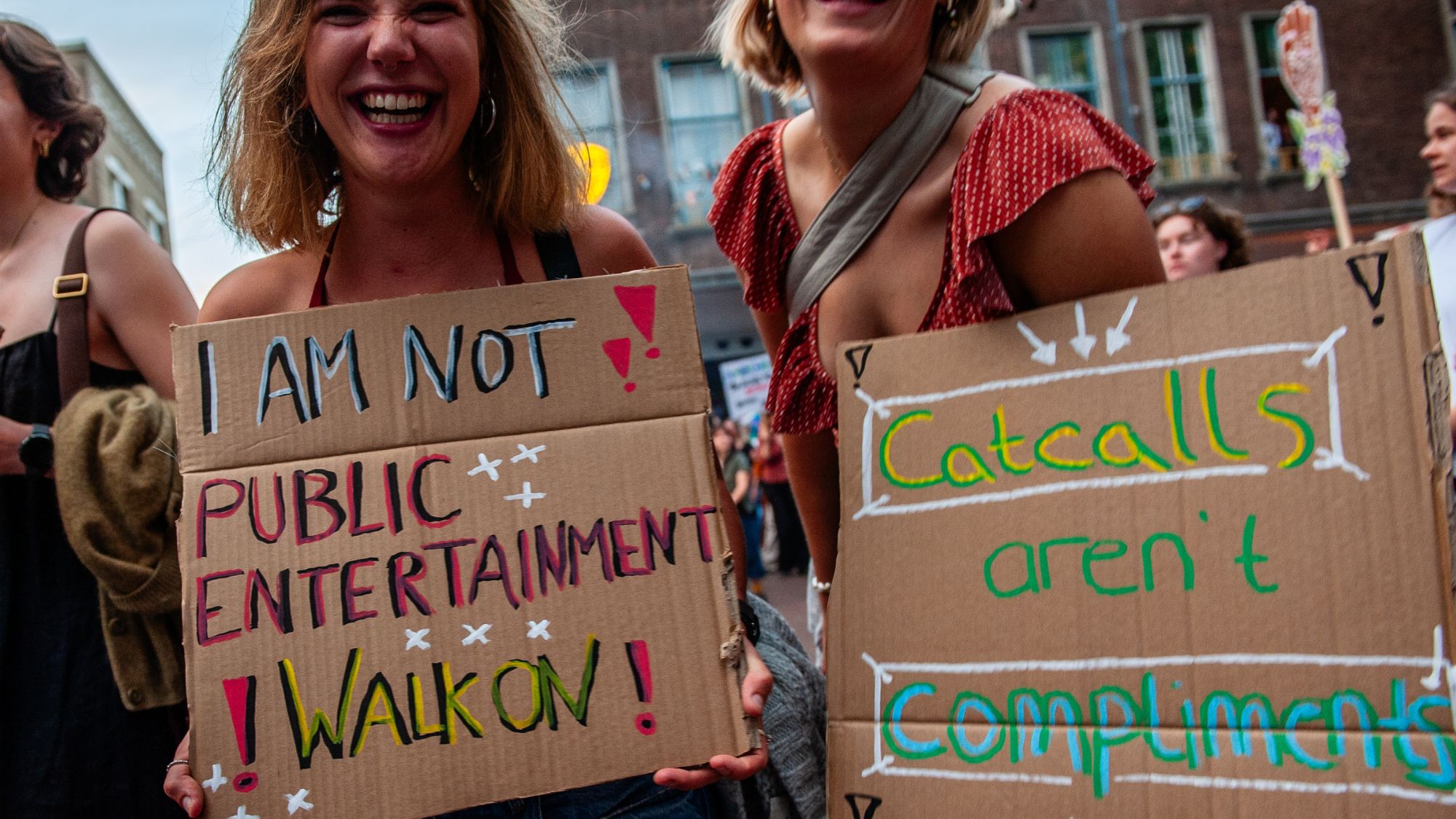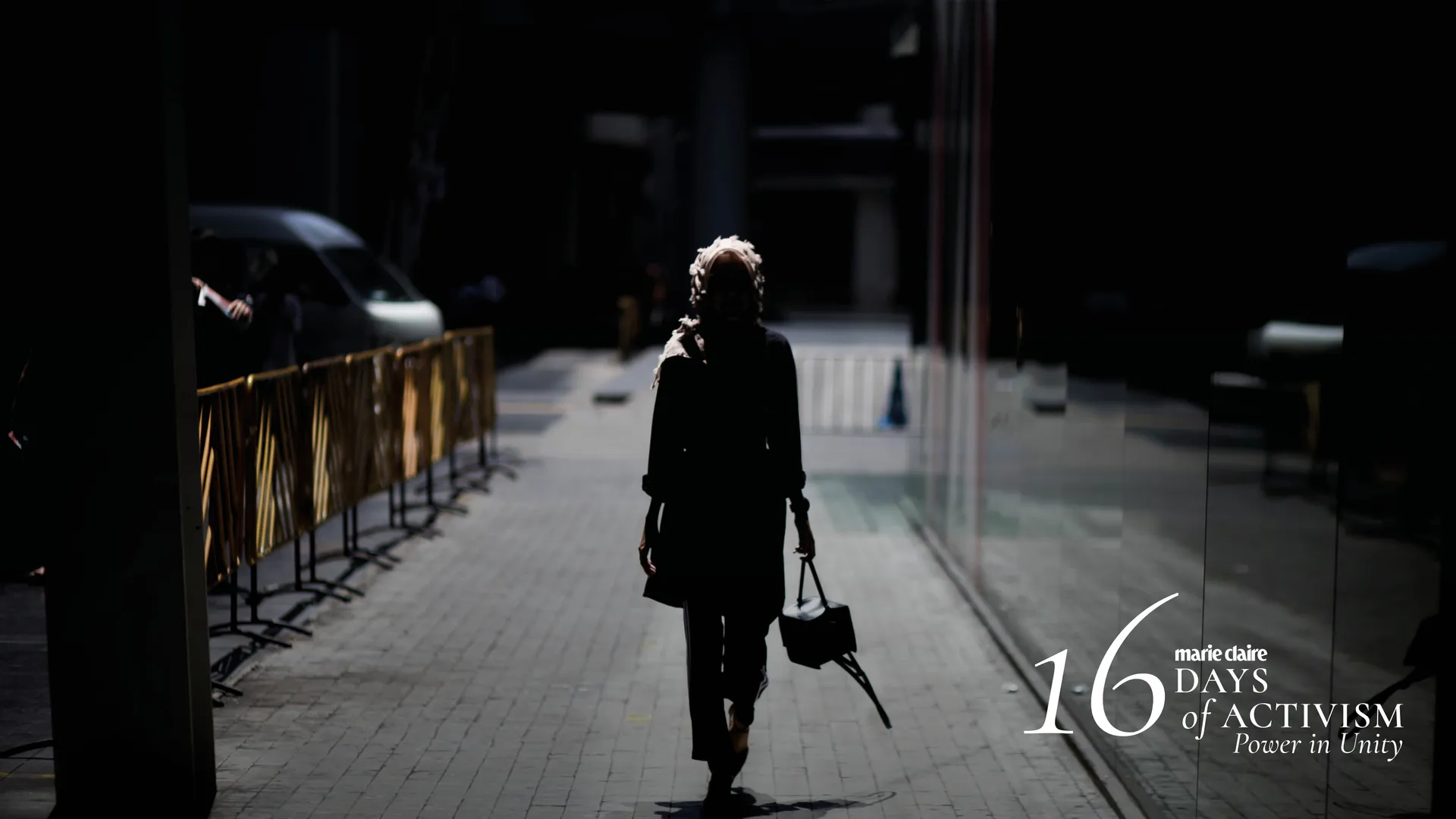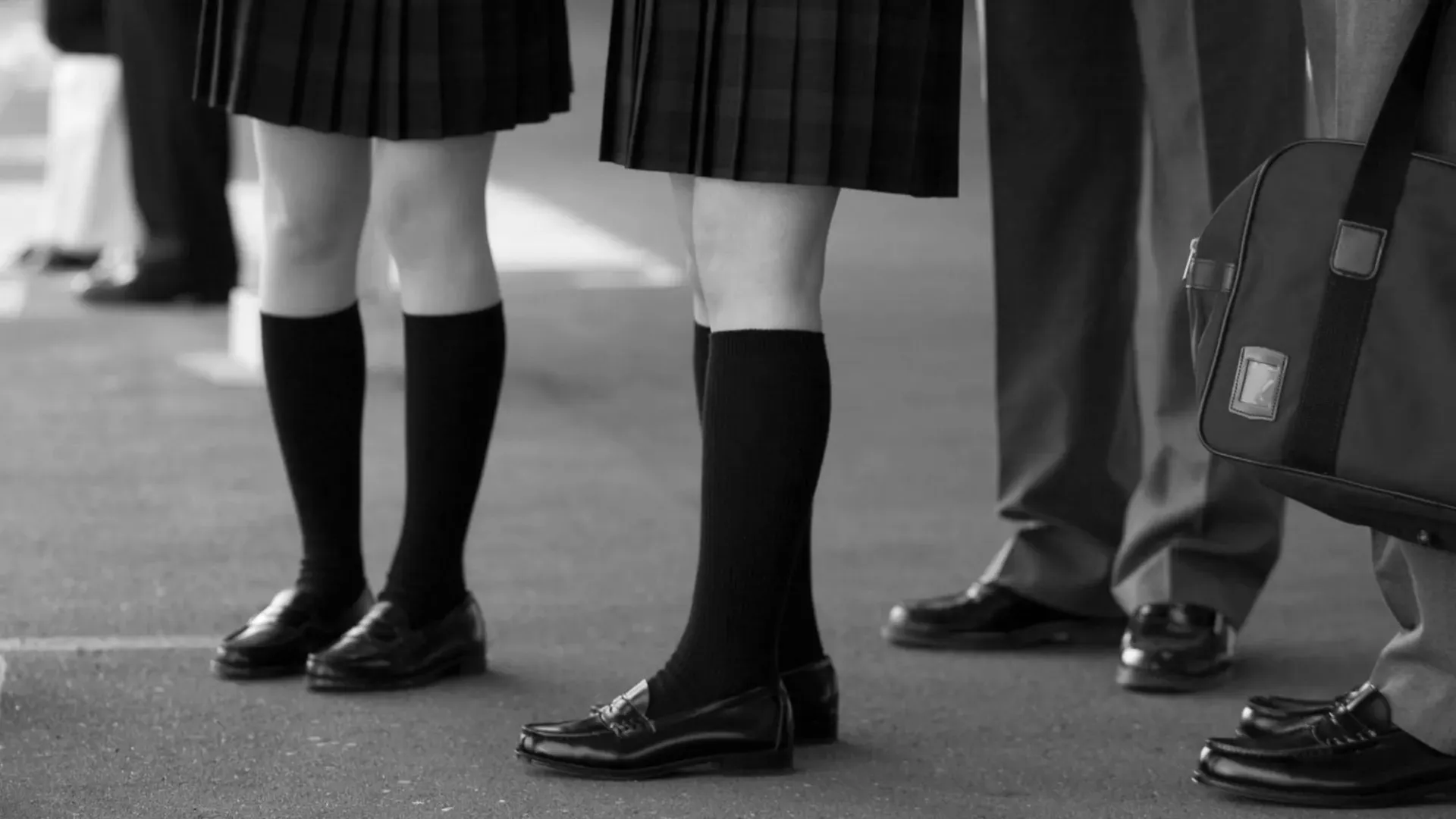1.5 Million Young UK Women Face Harassment — And Still, No Action From the Government
The law to prosecute sex-based harassment exists. But two years on, it’s not being enforced — and girls across the UK are being failed every single day.


Two years after the Protection from Sex-Based Harassment in Public Act passed, the Government still hasn’t made it enforceable. In that time, an estimated 1.5 million young women have faced harassment on UK streets.
Exactly two years ago today, Parliament passed a landmark bill. It felt like a turning point: finally, a legal safeguard against the kind of public harassment girls and young women face daily. That law still hasn’t come into effect.
The UK Government cites a delay in statutory guidance required to enforce it as the holdup, but campaigners from Our Streets Now and Plan International UK are urging the bill to be enforced immediately as part of their #CrimeNotCompliment campaign.
New analysis from the charities not only paints a chilling picture of life for young women in the UK — it shows that things have actually gotten worse in the two years the bill has been stagnant:
- 1.5 million young women aged 16–24 have been harassed in public since the bill passed
- 1 in 4 reported experiencing sexual harassment just in the past year
- 95% of girls aged 14–21 take measures to feel safe in public — from avoiding eye contact to turning on location tracking
- 49% say things have gotten worse since the law was passed — among 18–21-year-olds, that figure rises to 57%
Charli Keely, Head of Campaigns at Our Streets Now, still remembers being told at 18 years old that she looked “rapeable” by a group of men while she was walking to a university lecture. “I felt so unsafe I went back inside and changed clothes. I ended up missing half my lecture.” This was not Keely’s first encounter with predatory men. “I remember really clearly being in school uniform on a bus on the way home when a man came and sat next to me and sat really close to me.” She was just 14 when the stranger got so close that he eventually put his hand on her bare leg and stared at her without saying a word, while fellow travellers just looked away. “The bus was packed, and not a single person called him out on what he was doing.”
Keely’s experience is not the exception, it’s the reality for too many young girls.

Often, when we think of street harassment, we envision dark alleys with a shadowy figure lurking a few steps behind — but as Keely’s experience, and the experience of so many other girls and women shows, any public space can become a place of fear, abuse, and intimidation.
Celebrity news, beauty, fashion advice, and fascinating features, delivered straight to your inbox!
The Protection from Sex-Based Harassment in Public Act was supposed to protect victims by making public harassment a specific criminal offence. But two years later, with no statutory guidance, police can’t use it, courts can’t enforce it, and most victims don’t even know it exists: only 7% of young women who’ve experienced harassment reported it to the police. Instead, two-thirds (66%) turned to friends for support.
Separate research from the London taxi app Freenow reveals that British respondents report experiencing unwanted physical attention from a stranger more than once a month on average. In the past six months alone, nearly half of women (48%) say they have felt uncomfortable due to someone walking closely behind them on the street.
Georgia Theodoulou was sexually harassed by the male pupils she was teaching. “One made a penis out of paper, walked down to the front of the classroom and ‘masturbated’ it and mimed it ejaculating in front of me. The other asked me for a sex act.” For Theodoulou, it was clear where her students were getting this misogynistic message from — a Year 11 student’s school book was labelled with the name ‘Andrew Tate’, and the message “make me a fucking sandwich” was scrawled across the front.
The abuse isn’t the reserve of secondary schools either. Earlier this year, the charity website Everyone’s Invited listed as many as 1,664 British primary schools where sexual abuse or harassment has taken place.

This proves that while enforcement is vital, so is education. “The law is just one part of ending the normalisation of this everyday manifestation of gender-based violence,” explains Issy Warren, Head of Programmes at Our Streets Now. Yet right now, that vital preventative work is underfunded and overlooked.
From school corridors to city streets, the burden of public sexual harassment falls unfairly on young women and girls — and even more so on disabled and LGBTQ+ people, who face harassment at rates two to six times higher than others.
This is why Our Streets Now and Plan International UK are urging the Government to publish and implement statutory guidance immediately to make the Act enforceable, and to pair enforcement with preventative education to tackle the cultural attitudes that fuel harassment.
“Finally publishing this guidance would send an important message that the Government recognises and cares about the toll of harassment on the wellbeing and safety of women and girls,” explains Kathleen Spencer Chapman, Director of Influencing & External Affairs at Plan International UK, adding: “That means implementing this Act, ensuring police and courts can address harassment effectively, and tackling misogyny early in our schools.”
Until this law is enforced, 1.5 million young women will know what it feels like to be harassed — and ignored.
Here’s What You Can Do Right Now:
- Write to your MP demanding immediate commencement of the Act
- Find your MP
- Speak out — share your story, challenge harmful behaviour, support your peers
- Donate to Our Streets Now

Mischa Anouk Smith is the News and Features Editor of Marie Claire UK.
From personal essays to purpose-driven stories, reported studies, and interviews with celebrities like Rosie Huntington-Whiteley and designers including Dries Van Noten, Mischa has been featured in publications such as Refinery29, Stylist and Dazed. Her work explores what it means to be a woman today and sits at the intersection of culture and style. In the spirit of eclecticism, she has also written about NFTs, mental health and the rise of AI bands.